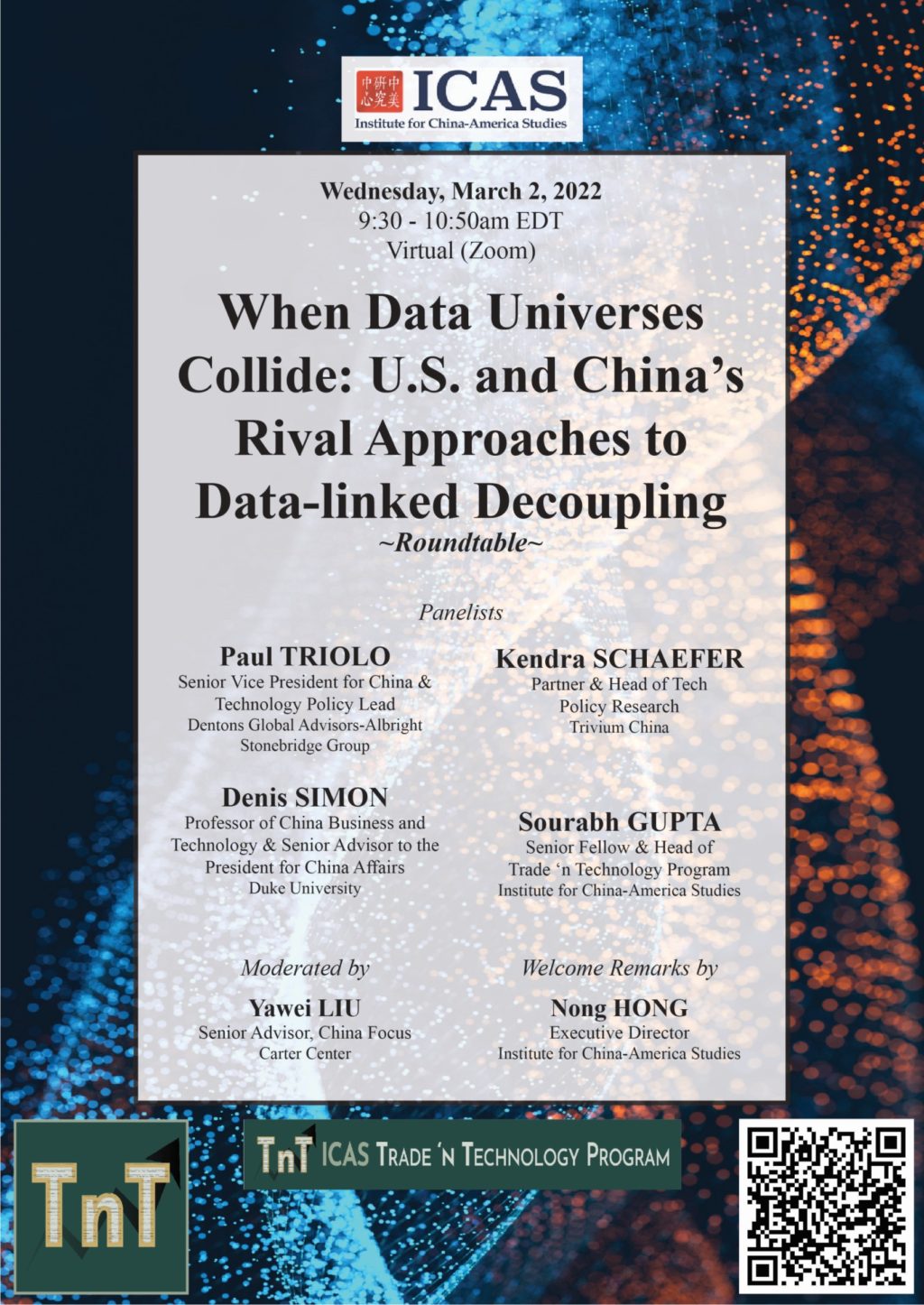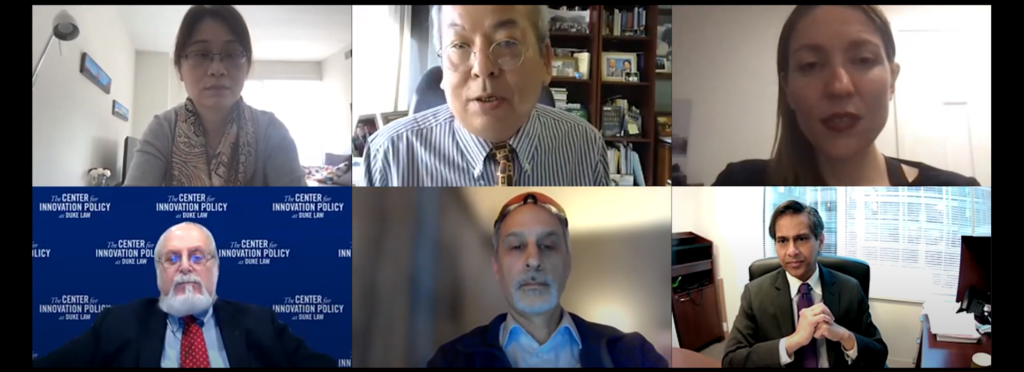
POST-EVENT SUMMARY
On March 2, 2022, the Institute for China-America Studies (ICAS) hosted a virtual public event to discuss the U.S. and Chinese approaches to data protection and data flows. The event was titled “When Data Universes Collide: U.S. and China’s Rival Approaches to Data-linked Decoupling.” Dr. Hong Nong, Executive Director and Senior Fellow at ICAS, delivered the opening remarks, speaking to the scope for both competition and cooperation in the high-technology sector as well as re-publicizing the launch of ICAS’ Trade ’n Technology (TnT) Program. The discussion was moderated by Dr. Liu Yawei, Senior Advisor at the Carter Center, and featured four speakers: Mr. Paul Triolo, Senior V.P. for China and Technology Policy Lead at Dentons Global Advisors-Albright Stonebridge Group (ASG), Dr. Denis Simon, Senior Advisor to the President for China Affairs at Duke University and a Senior Advisor to ICAS’ TnT Program, Ms. Kendra Schaefer, Partner and Head of Tech Policy Research at Trivium China, and Mr. Sourabh Gupta, Senior Fellow and Head of ICAS’ TnT Program.
At a time when the amount of data that traverses domestic and cross-border networks has skyrocketed, the panelists expressed a variety of perspectives on the U.S. and Chinese strategies on data management and data protection. The U.S. has been somewhat behind-the-curve in thinking through and drawing up a coherent strategy on data. Regulation has been relatively light, the bent has been heavily commercial, and corporate misconduct in this space prosecuted episodically on a case-by-case basis. China’s approach to data, on the other hand, has been far more structured and forward-looking. Starting with the Cybersecurity Law of November 2016, the state has gradually pivoted towards an economic approach to data protection – and data flows, such that today data is sought to be treated as a fifth factor of production. The tendency to be overly prescriptive in drawing up data-related regulations could have a boomerang effect though on China’s efforts to deepen its data economy, especially if techno-nationalist considerations continue to take hold at a time of grave challenges in the international system and in U.S.-China relations.
Panelists were united in the view that data is indeed the ‘new petroleum of the information age’. First-mover advantage of prescient data regulation could redound in international rule-making and standard-setting power. That said, regulatory competition is just one facet of a larger challenge. At a time of ‘selective decoupling’ in U.S.-China relations, the more important question to field is this: how does one retain interoperability – or develop new ways to operate – on data with countries and regions that have different legal systems and drivers for data and personal information protection? At the end of the day, mutually decoupled data universes are in the main to no one’s advantage.



